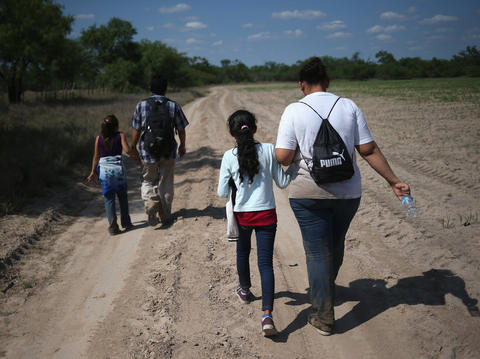Help Defend Asylum
CGRS relies on the generous support of people like you to sustain our advocacy defending the human rights of refugees. Make a gift today!

April 3, 2018 - Since his confirmation, Attorney General Jeff Sessions has repeatedly disparaged asylum seekers in an attempt to garner support for his efforts to eliminate the limited protections our immigration system provides them. Last October, Sessions delivered a speech before the Executive Office of Immigration Review in which he characterized asylum seekers as fraudsters, referring to their advocates as “dirty immigration lawyers” who coach their clients to make false claims of persecution. He spoke in support of a set of extreme, anti-immigrant policy proposals introduced by the White House last fall. Sessions is now attempting to use his own authority as Attorney General to erode due process and roll back hard-won advances for asylum seekers.
On March 7, 2018, Sessions “certified” to himself the asylum case Matter of A-B- for a decision. The asylum seeker in Matter of A-B- is a woman from El Salvador who fled severe physical and emotional abuse at the hands of her domestic partner. Ms. A.B.’s application for asylum was initially denied by an immigration judge in North Carolina. She appealed that decision, and in 2016 the Board of Immigration Appeals ruled in her favor, affirming the principle that domestic violence can serve as a basis for asylum. By certifying the case, Sessions is positioning himself to reverse the Board’s 2014 precedent decision, Matter of A-R-C-G-. Sessions has stated the issue he wants to address in this case is whether being a “victim of criminal activity constitutes a cognizable ‘particular social group.’” His characterization of the issue is odd – to say the least – because the social group in A-B- was not defined in reference to being a victim of criminal activity. What is clear is that Sessions is attempting to use the certification process to dismantle critical protections for women like Ms. A.B., as well as others who base their claims upon the “particular social group” ground. His intention is to preclude asylum not only in cases involving survivors of domestic violence and other forms of gender-based persecution, but also in the many other cases where non-state actors persecute individuals, including those involving children and LGBTQ applicants.
Matter of A-B- implicates issues at the core of CGRS’s mission and threatens to undo much of our hard-won progress towards protecting survivors of gender-based violence. As soon as we learned that Sessions had certified A-B-, we reached out to the two attorneys in the case, Andres Lopez and Ben Winograd, offering our expertise, and we subsequently entered into a co-counseling agreement with them. We, along with co-counsel, are working with allies nationwide to challenge Sessions’ attacks on asylum, and many interested parties are involved as amici or in other supportive roles. We hope to thwart Sessions’ attacks on the advances we have all worked so hard to achieve.
Sessions has already used the certification process to vacate the Board’s precedent decision in Matter of E-F-H-L-, sending the case back to immigration court. The immigration judge in E-F-H-L- had denied asylum to a Honduran man based on his written application alone, ruling that because the applicant had failed to establish prima facie eligibility for relief, he was not entitled to a full hearing. The applicant appealed to the Board, and the Board remanded the case, holding that immigration judges must provide asylum seekers the opportunity to have their claims heard in a full evidentiary hearing. By vacating the BIA’s decision, Sessions is attempting to deny asylum seekers their right to a meaningful opportunity to present their claims in immigration court. This particular attack on due process is one that Sessions alluded to in his remarks back in October, during which he lamented “current case law [requiring] a court hearing on every asylum application,” even those “without merit.” But evidentiary hearings are critical to ensure that asylum seekers have the opportunity to fully develop their cases and gather the evidence needed to support their claims. This attempt by Sessions to curtail asylum seekers’ access to the adjudication system itself flies in the face of due process principles protected in numerous statutory provisions and precedential court decisions. CGRS is monitoring closely immigration judges’ application of Sessions’ decision in E-F-H-L-. We encourage attorneys who encounter related obstacles in immigration court to contact us through our technical assistance program.
Photo from John Moore, Getty Images.
 Get help
Get help Log In
Log In




